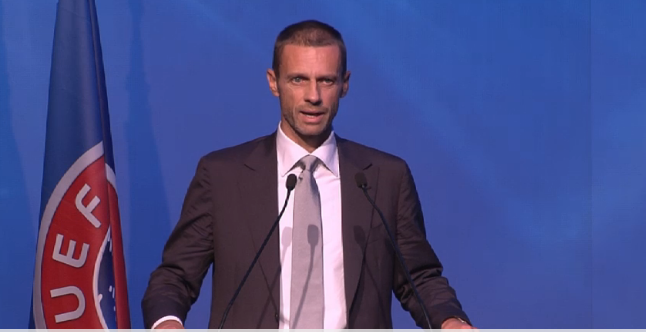By Andrew Warshaw
January 19 – UEFA President Aleksander Ceferin sees no “rational or legal grounds” to strip Russia of the 2018 World Cup despite the recent doping scandal combined with persistent instances of racism and the ongoing probe by Swiss authorities into the bid process.
In an interview with Tass, Ceferin commented: “I am convinced that the Russian Federation will do a great job in collaboration with the local organising committee. I am not worried.”
Despite the overwhelming burden of proof in the recent McLaren report into state-sponsored doping, Ceferin sees no problem – at least not in football. “The results of our tests, conducted by WADA accredited laboratories, show no specific doping problem in Russia,” he said.
Nor, says Ceferin, is there an issue with Russian Deputy Prime Minister Vitali Mutko, cited in the McLaren report, being put forward as a UEFA representative to the FIFA Council. Mutko, head of Russian football and of the World Cup organising committee, is one of a number of candidates who have put their names forward for elections to the Council in April.
Ceferin argues that it’s up to FIFA whether to accept Mutko since his candidacy, like others, has to pass the relevant integrity check. “This will ultimately be a FIFA decision since it is the FIFA review committee who performs eligibility checks.”
Inevitably since the interview was with Tass, Ceferin said all the right things about Russia but he sat firmly on the diplomatic fence when asked about FIFA’s decision to expand the World Cup to 48 teams from 2026.
Prior to FIFA president Gianni Infantino officially announcing expansion earlier this month following agreement by the ruling Council, UEFA were sceptical about the idea.
Ceferin was conspicuous by his absence at media briefings that followed the announcement in Zurich but now appears to suggest UEFA has reluctantly given expansion its blessing, perhaps in order not to rock the boat and ensure Europe obtains its fair share of the 16 additional slots.
“During the FIFA Council meeting in Zurich, it was clear that all other confederations were overwhelmingly in favour of expanding the FIFA World Cup to 48 teams starting in 2026,” he told Tass.
“As a result, UEFA decided to join in supporting the new format of the competition. We are satisfied that the length of the tournament will not increase, which is crucial for the clubs as it will not increase the burden on the players.”
Contact the writer of this story at moc.l1713570909labto1713570909ofdlr1713570909owedi1713570909sni@w1713570909ahsra1713570909w.wer1713570909dna1713570909

